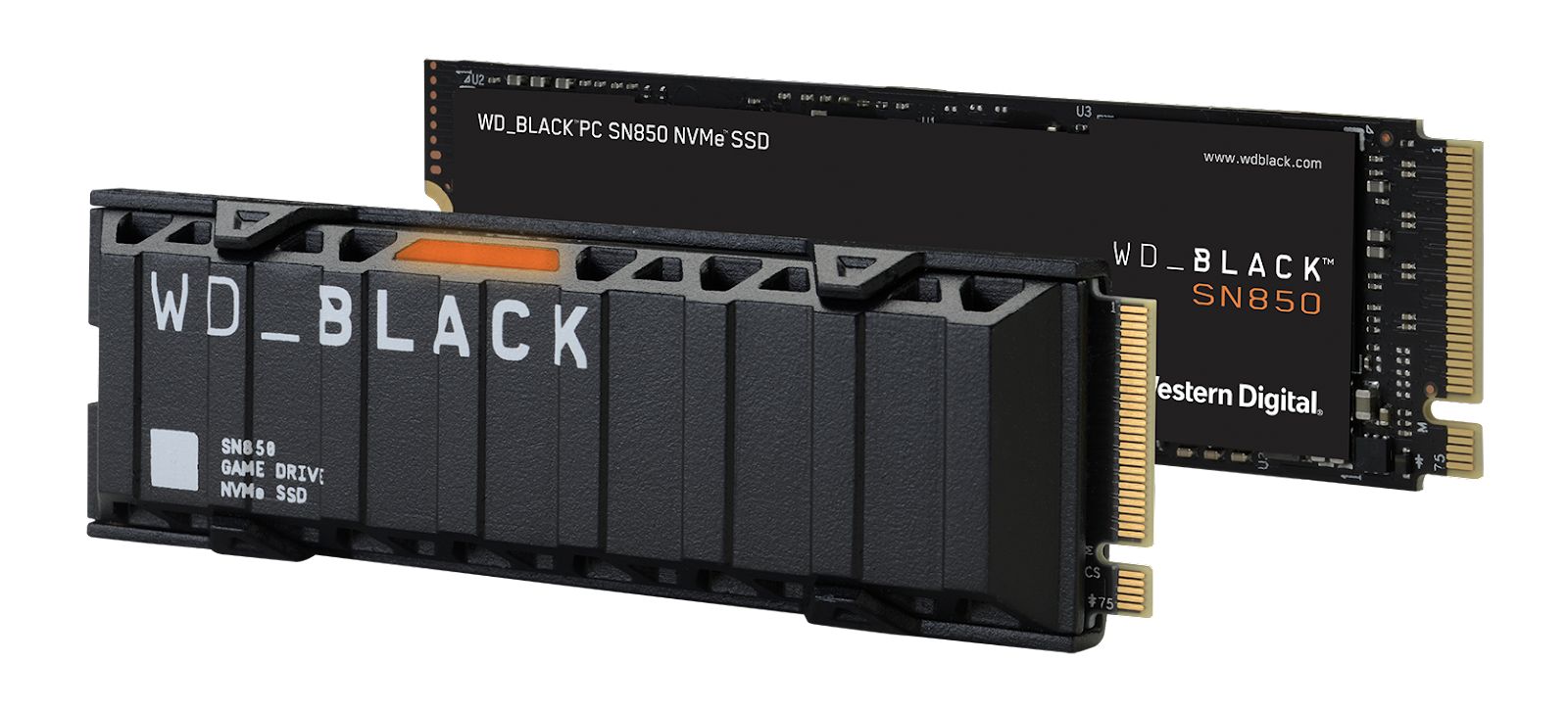Introduction
Welcome to the world of web hosting, where there are various types of hosting options to choose from. One popular choice among website owners is SSD hosting. SSD, which stands for Solid State Drive, is a type of storage device that has gained significant popularity in recent years due to its numerous advantages over traditional Hard Disk Drives (HDD).
When it comes to hosting your website, the performance and speed at which your web pages load can make a significant difference in user experience and search engine rankings. Slow loading times can lead to higher bounce rates, lower conversion rates, and ultimately, a loss of potential customers.
SSD hosting is a type of web hosting that utilizes Solid State Drives instead of traditional Hard Disk Drives for storing and accessing data on the servers. These SSDs, which use flash memory, offer faster read and write speeds, resulting in improved website performance.
With the ever-increasing demand for fast-loading websites, SSD hosting has become a preferred choice for businesses and individuals alike. In this article, we will delve deeper into the world of SSD hosting, explain how it works, discuss its benefits and drawbacks, and provide guidance on when to choose SSD hosting for your website.
So, whether you are a small business owner, blogger, or an e-commerce entrepreneur, understanding SSD hosting and its advantages can help you make an informed decision about the hosting option that best suits your needs.
Definition of SSD Hosting
SSD hosting refers to a type of web hosting that utilizes Solid State Drives (SSDs) instead of traditional Hard Disk Drives (HDDs) for data storage and retrieval on servers. Unlike HDDs, which use mechanical components and spinning disks, SSDs use flash memory technology to store data, resulting in faster read and write speeds.
SSD hosting is designed to deliver superior performance and speed to websites, ensuring faster loading times and improved user experience. The use of SSDs eliminates the bottlenecks caused by mechanical components, allowing for quicker access to data, which is particularly beneficial for resource-intensive websites, e-commerce platforms, and applications that require fast data processing.
In addition to faster speeds, SSD hosting offers several other advantages over traditional HDD-based hosting options. These include enhanced reliability, increased durability, lower power consumption, and reduced noise levels. Since SSDs do not have any moving parts, they are less prone to mechanical failures, making them a more reliable choice for hosting purposes.
Furthermore, SSDs are more resistant to physical shocks and vibrations, making them a durable option for hosting servers. This increased durability translates to fewer disruptions and potential data loss, making SSD hosting a more reliable choice for businesses and individuals looking for a stable hosting environment.
Moreover, SSDs consume less power compared to HDDs, resulting in lower energy costs and a smaller carbon footprint. The reduced power consumption not only benefits the environment but also contributes to cost savings for businesses hosting their websites on SSD servers.
Overall, the definition of SSD hosting encompasses the use of Solid State Drives to store and retrieve data on hosting servers. By harnessing the speed, reliability, durability, and energy efficiency of SSDs, this hosting option provides improved performance and user experience for websites, making it a popular choice among businesses and individuals seeking superior hosting capabilities.
How SSD Hosting Works
SSD hosting works on the same fundamental principles as traditional web hosting, but with the key difference lying in the type of storage device used. Instead of using Hard Disk Drives (HDDs), SSD hosting utilizes Solid State Drives (SSDs) to store and retrieve data on the hosting servers.
SSDs, unlike HDDs, do not rely on spinning disks or mechanical components to access data. Instead, they use flash memory technology, which allows for faster data retrieval and improved overall performance. This is because SSDs have no moving parts, which eliminates the latency and bottlenecks associated with traditional drives.
When you choose SSD hosting for your website, your data is stored on SSDs within the hosting server. When a user accesses your website through their web browser, a request is sent to the hosting server. The server retrieves the necessary data from the SSD storage and delivers it to the user’s browser, allowing them to view your web pages and content.
The use of SSDs in hosting servers significantly reduces the data access time. SSDs offer faster read and write speeds, allowing websites to load more quickly and efficiently. This benefits both the website owner and the end-user, as faster loading times lead to improved user experience, lower bounce rates, and higher search engine rankings.
Furthermore, SSD hosting enhances the server’s performance in handling multiple requests simultaneously. This is particularly crucial for websites that experience heavy traffic or have resource-intensive applications. The faster data access and retrieval speeds of SSDs enable the hosting server to process more requests efficiently, ensuring a seamless user experience even during peak traffic periods.
It is important to note that SSD hosting can be implemented in various hosting environments, including shared hosting, virtual private servers (VPS), and dedicated servers. The benefits of SSDs are not limited to any specific hosting type, making them a versatile and advantageous choice for websites of all sizes and complexities.
In summary, SSD hosting works by utilizing Solid State Drives to store and retrieve data on hosting servers. The use of SSDs eliminates the bottlenecks of mechanical components, offering faster data access and retrieval speeds. This results in improved website performance, faster loading times, and enhanced user experience for website visitors.
Benefits of SSD Hosting
SSD hosting offers a range of benefits that make it an attractive choice for website owners. Here are some of the key advantages of SSD hosting:
- Improved Performance: One of the primary benefits of SSD hosting is its superior performance. SSDs offer significantly faster read and write speeds compared to traditional Hard Disk Drives (HDDs). This translates into faster loading times for web pages, resulting in a smoother and more satisfying user experience.
- Enhanced Reliability: SSDs have no moving parts, which makes them more resistant to mechanical failures. This increased reliability ensures that your website remains online and accessible to visitors without disruptions caused by hardware failures. Additionally, SSDs are less vulnerable to vibration and shock, providing added protection for your data.
- Reduced Latency: The low latency of SSDs allows for quick data access and retrieval. This is especially beneficial for websites that require frequent database queries or handle large volumes of data. With SSD hosting, your website can respond rapidly to user requests, leading to faster loading times and improved user satisfaction.
- Improved SEO Rankings: Search engines like Google consider page loading speed as a ranking factor. SSD hosting can significantly improve your website’s loading times, which can result in higher search engine rankings. Improved rankings can lead to increased organic traffic and better visibility for your website.
- Lower Power Consumption: SSDs consume less power than traditional HDDs. This not only helps reduce energy costs but also contributes to a more environmentally friendly hosting solution. By choosing SSD hosting, you can enjoy the benefits of improved performance while being energy efficient.
- Scalability: SSD hosting is highly scalable, making it suitable for websites that experience sudden spikes in traffic or have growing resource demands. With SSDs, handling increased data and user loads becomes more efficient, allowing your website to adapt and perform reliably even during periods of high demand.
- Reduced Downtime: Due to their reliability and durability, SSDs help minimize downtime caused by hardware failures or data corruption. This ensures that your website remains accessible to visitors, preventing revenue loss and maintaining a positive online presence.
These benefits collectively contribute to an improved website performance, better user experience, and increased potential for business growth. With faster loading times, enhanced reliability, and improved SEO rankings, SSD hosting can help you stay ahead of the competition in today’s online landscape.
Drawbacks of SSD Hosting
While SSD hosting offers numerous advantages, it’s important to consider the potential drawbacks associated with this hosting option. Here are a few key drawbacks to keep in mind:
- Cost: SSDs are generally more expensive compared to traditional Hard Disk Drives (HDDs). As a result, SSD hosting plans tend to have higher price points. While the cost of SSDs has gradually decreased over time, SSD hosting may still be relatively more expensive than HDD hosting options.
- Storage Capacity: SSDs typically have smaller storage capacities compared to HDDs. This means that hosting plans that utilize SSDs might offer less disk space for storing files, databases, and other website content. However, as SSD technology advances, the gap in storage capacity between HDDs and SSDs is gradually narrowing.
- Limited Lifespan: SSDs have a limited number of read and write cycles before they may start to deteriorate. While modern SSDs have made significant advancements to improve their longevity, it is still possible for an SSD to fail after prolonged use. However, it is important to note that SSD failure rates are typically lower than those of HDDs.
- Data Recovery: In the event of an SSD failure, data recovery can be more challenging compared to traditional HDDs. While data recovery from SSDs is not impossible, it may require specialized techniques and services which can be more costly and time-consuming.
- Compatibility: Although SSDs are compatible with most modern systems and hosting environments, there may be instances where certain legacy systems or older hardware may not fully support SSDs. It’s important to ensure that your hosting environment is compatible with SSDs before opting for SSD hosting.
- Overprovisioning: To maintain the longevity and performance of SSDs, hosting providers may utilize a technique known as overprovisioning. This means that a portion of the SSD’s capacity is reserved for maintenance and performance optimization, which can result in slightly less usable storage space for users.
Despite these drawbacks, it’s important to note that SSD hosting remains a popular choice due to its numerous benefits outweighing the potential limitations. The advancements in SSD technology continue to address many of these drawbacks, making SSD hosting a compelling option for businesses and individuals seeking high-performance hosting solutions.
Cost of SSD Hosting
When considering hosting options, it’s essential to understand the cost factors associated with SSD hosting. While SSD hosting offers numerous benefits, it typically comes with a higher price tag compared to traditional Hard Disk Drive (HDD) hosting. However, the cost of SSD hosting has gradually decreased over the years, making it more accessible to website owners with varying budgets.
The higher cost of SSD hosting can be attributed to the following factors:
- Hardware Costs: SSDs are more expensive than HDDs. The cost of manufacturing and sourcing SSDs, which utilize flash memory technology, is relatively higher compared to the more established HDD technology. As a result, hosting providers who offer SSD hosting need to factor in these higher hardware costs, which are reflected in the pricing of their hosting plans.
- Performance and Speed: SSD hosting is favored for its superior performance and faster loading times. The increased speed and responsiveness of SSDs come at a premium compared to traditional HDDs, which impacts the overall cost of the hosting service.
- Data Centers and Infrastructure: Hosting companies that offer SSD hosting typically invest in state-of-the-art data centers and infrastructure to ensure maximum reliability and performance. These investments come with additional costs, which are passed on to the customers opting for SSD hosting plans.
- Support and Maintenance: SSD hosting often requires specialized technical expertise for proper setup, maintenance, and support. The availability of experienced professionals with knowledge of SSD technology can contribute to the overall cost of providing SSD hosting services.
While the cost of SSD hosting may be higher compared to traditional HDD hosting, it’s important to consider the benefits it offers. The improved performance, faster loading times, and enhanced user experience can ultimately translate into higher conversions, improved search engine rankings, and increased revenue generation.
It’s worth noting that pricing structures for SSD hosting can vary among hosting providers. Factors such as the amount of storage space, bandwidth allocation, additional features, and level of customer support can all influence the pricing of SSD hosting plans.
When selecting an SSD hosting provider, it’s crucial to carefully evaluate the pricing plans and compare them against the specific needs of your website. Consider factors such as expected traffic volume, storage requirements, and any additional features or resources that may be necessary for your online presence.
Overall, while SSD hosting may come with a higher cost compared to HDD hosting, the benefits it provides in terms of improved performance and faster website speeds can outweigh the price difference for many website owners. It’s important to find the right balance between cost and the desired hosting features to ensure optimal performance and value for your investment.
When to Choose SSD Hosting
Choosing the right hosting solution for your website is crucial to ensure optimal performance and user experience. While HDD hosting has been the traditional choice for many years, SSD hosting offers several benefits that make it worth considering. Here are some scenarios when you should strongly consider choosing SSD hosting:
- High-Traffic Websites: If your website experiences heavy traffic or expects significant growth in the future, SSD hosting is an excellent choice. The faster read and write speeds of SSDs ensure quick data access and retrieval, allowing your website to handle increased traffic volume efficiently.
- E-commerce Platforms: For online stores and e-commerce platforms, speed and performance are essential. Slow loading times can impact sales and user retention. SSD hosting enables rapid loading of product pages, improving the overall shopping experience and reducing cart abandonment rates.
- Resource-Intensive Applications: Websites or applications that require extensive database queries, complex calculations, or high data processing capabilities can benefit significantly from SSD hosting. The faster data access speeds of SSDs ensure smooth and efficient functioning of resource-intensive applications.
- SEO and Search Engine Rankings: Website loading speed is a ranking factor for search engines, including Google. By choosing SSD hosting, you can improve your website’s loading times, which can lead to better search engine rankings and increased organic traffic to your site.
- Online Gaming or Media Streaming: If your website offers online gaming or media streaming services, SSD hosting can enhance the user experience. The faster data access and retrieval speeds of SSDs ensure smooth gameplay, faster file transfers, and uninterrupted streaming of high-quality media.
- Business-Critical Websites: If your website is vital for your business operations, such as generating leads, facilitating customer support, or handling online transactions, SSD hosting is highly recommended. The improved reliability and reduced downtime of SSDs ensure continuous availability and smooth operations.
It is important to assess your specific website requirements and consider the expected traffic volume, types of content, and performance needs when deciding to opt for SSD hosting. If your website demands fast loading speeds, improved reliability, and enhanced overall performance, SSD hosting is likely a suitable choice for you.
However, it’s essential to balance your hosting needs with your budget. While SSD hosting may come at a higher cost compared to traditional HDD hosting, the benefits it provides in terms of performance and user experience can often justify the investment.
Ultimately, the decision to choose SSD hosting should be based on a thorough evaluation of your website’s requirements, considering factors such as traffic expectations, resource demands, data processing needs, and the importance of performance. By selecting the right hosting solution, you can provide your website visitors with a fast, reliable, and enjoyable browsing experience.
Conclusion
SSD hosting has revolutionized the web hosting industry by offering superior performance, faster loading times, and enhanced reliability compared to traditional Hard Disk Drive (HDD) hosting. The use of Solid State Drives (SSDs) has become increasingly popular due to their numerous benefits and the growing demand for fast and efficient websites.
SSD hosting delivers improved website performance, which leads to better user experience, higher search engine rankings, and increased customer satisfaction. With faster data access and retrieval speeds, SSDs ensure quick response times and seamless navigation for website visitors.
In addition to performance benefits, SSD hosting offers enhanced reliability and durability. The absence of moving parts in SSDs reduces the risk of mechanical failures, ensuring uninterrupted operations. Furthermore, SSDs consume less power, making them energy-efficient and environmentally friendly.
Although SSD hosting may come at a higher cost than traditional HDD hosting, the superior performance and user experience it provides often justify the investment. Websites that benefit the most from SSD hosting include high-traffic websites, e-commerce platforms, resource-intensive applications, and business-critical websites.
When considering SSD hosting, it is essential to evaluate your specific website requirements, expected traffic volume, and budget constraints. By choosing the right SSD hosting plan from a reputable hosting provider, you can maximize your website’s potential and provide an exceptional online experience for your visitors.
In conclusion, SSD hosting offers numerous advantages, including improved performance, reliability, and energy efficiency. With the increasing demand for faster and more responsive websites, SSD hosting has become the preferred choice for website owners who prioritize speed, user experience, and search engine rankings. Take the time to evaluate your hosting needs and determine if SSD hosting is the right fit for your website’s requirements to benefit from its many advantages.

























